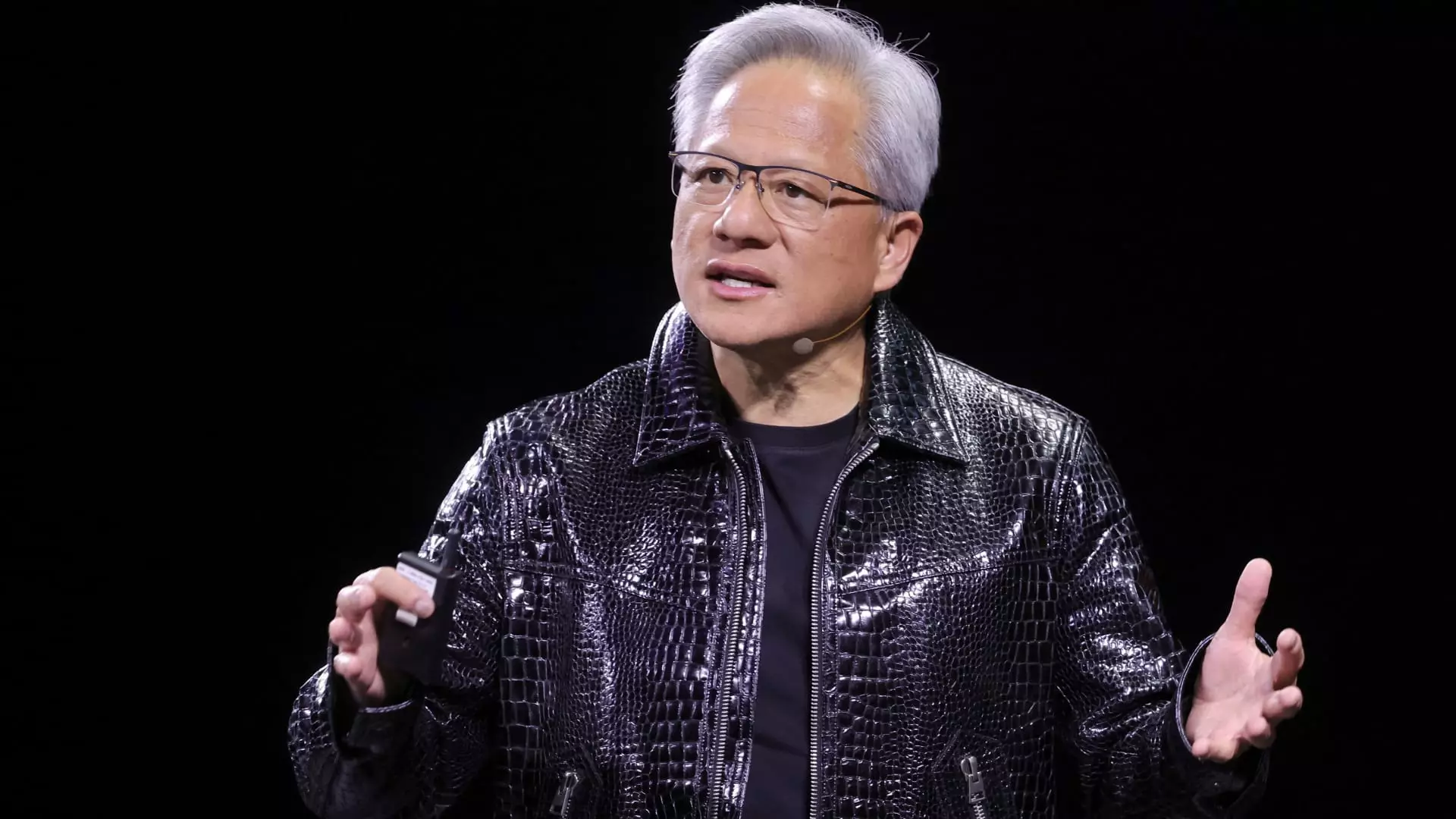Investors in the tech world often ride a rollercoaster fueled by enthusiasm, speculation, and the occasional dose of harsh reality. Jensen Huang, the CEO of Nvidia, made headlines during his recent presentation at the company’s inaugural “Quantum Day,” attempting to reverse the unexpected consequences of his earlier remarks on quantum computing timelines. Instead of dispelling fears, Huang’s latest comments only intensified skepticism, causing various stocks within the quantum sector to plummet. This serves as a stark reminder of how precariously close the tech industry is to unfounded hype and why we must adhere to a more cautious outlook.
In a previous assessment, Huang suggested that it may take 15 to 20 years for quantum computers to significantly influence practical applications, a statement that rattled the markets and incited a sell-off. Herein lies one of the inherent dangers of corporate leadership in cutting-edge technologies: the immense weight of public statements made by influential figures like Huang can induce sharp market reactions, often disconnected from the true complexities of technological advancement.
The Backlash And Acknowledgment Of Missteps
Huang’s admission of being surprised by the market reaction to his comments was an echo of humility that few public figures in the tech sector demonstrate. He even stated, seemingly bemused, “This is the first event in history where a company CEO invites all the guests to explain why he was wrong.” While it could be perceived as a novel approach to leadership, this stance also raises questions about the accountability of tech executives navigating an industry rife with uncertainty.
Despite the well-intentioned initiative of hosting a “Quantum Day,” it turned out that the optics were misaligned with the actual sentiment of the market. As stocks like D-Wave plummeted by nearly 18%, investors were left grappling with the harsh realization that even the most optimistic proclamations can have dire consequences. Huang’s reassurances fell flat as the event did little to restore confidence in a sector that is already mired in turmoil.
Marketing Quantum: A Dangerous Game
Another significant point of contention during Huang’s address was his emphasis on the need for quantum computing to be rebranded—marketed not as a replacement for classical computing but as a complementary tool. This perspective could prove to be revolutionary; however, it also risks further alienating investors who are already weary from fluctuating fortunes. Analysts now warn that deconstructing the branding of quantum as simply a CPU alternative might detract from its perceived value.
Needham analyst Quinn Bolton noted that Huang’s suggestions regarding quantum’s branding might very well be “one of the most contested portions” of the event. Considering that many investors view quantum as a mystical, almost magical solution to computational limitations, redefining its role may feel like a betrayal. It raises the concern that Huang may be overestimating the public’s ability to grasp the nuances of this advanced technology, which could lead to more disillusionment down the line.
Nvidia’s Role in Quantum’s Future
Nvidia’s investments and developments in quantum technologies cannot be overlooked. The company is making strides in effectively marrying its powerful GPUs with quantum chips, offering a promising glimpse into how distinct computing paradigms can coexist. Furthermore, the announcement of a new research center in Boston signifies Nvidia’s intent to solidify its position as a key player in this nascent industry by fostering collaboration with institutions like Harvard and MIT.
However, Huang’s optimistic observations regarding quantum’s potential for “extraordinary impact” juxtaposed against an industry still reeling from skepticism is troubling. The Quantum Defiance ETF’s 4% decline this year is a litmus test of investor sentiment, underscoring a palpable hesitance to fully embrace a future that remains clouded by uncertainty.
It’s essential to recognize that while quantum computing has all the makings of a groundbreaking technology, the road to its realization does not come without pitfalls. As investors and stakeholders in the tech sphere, we need to demand more from thought leaders, leveraging their insights responsibly while fostering an enduring skepticism about overzealous claims. The future demands a balance between inventive optimism and grounded realism, an equilibrium that will dictate the fate of the quantum computing revolution.

